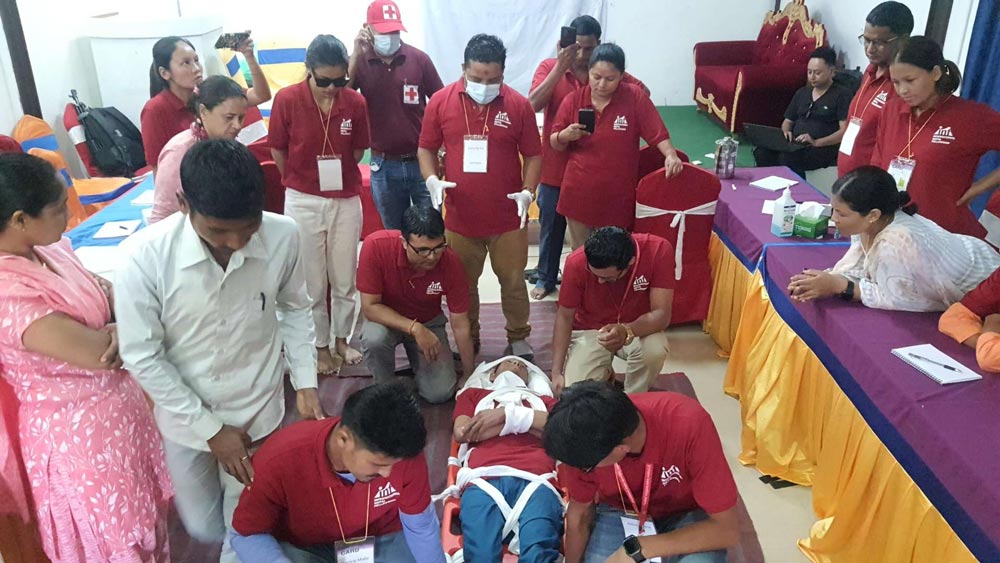In an effort to enhance community resilience and preparedness, INF Nepal’s Community Outreach Project conducted a comprehensive three-day Basic First Aid training in Nepalgunj from 5–7 September.
The training was attended by 23 participants, including INF staff members from various districts such as Rolpa, Kapilvastu, Bajura, Mugu, Jumla, Kalikot, Banke, Surkhet, and Dang, along with nine local government health workers.
The training aimed to achieve several critical objectives. First, it sought to equip attendees with essential skills to ensure their safety and the ability to assist in times of need. Second, it aimed to enable participants to apply these newfound skills effectively within their workplaces and communities during emergencies. Lastly, the training aimed to inspire participants to share their knowledge and skills by organising similar training sessions in their respective areas, thus extending the training’s impact throughout their communities.
The training was conducted by three certified First Aid trainers, covering both theoretical and practical aspects of first aid. Participants also had the opportunity to put their newly acquired knowledge into practice during hands-on exercises.
The training encompassed theoretical principles and key first-aid procedures, including addressing unconsciousness, cardiopulmonary resuscitation (CPR), aiding individuals in case of choking, managing significant bleeding and shock, responding to poison exposure, treating wounds and injuries, dealing with stings and bites, handling injuries to muscles, joints, or limbs, addressing injuries to the head, neck, or back, managing nosebleeds, tending to cases of diarrhoea and fever, addressing altitude sickness, frostbite, heat stroke, as well as techniques for lifting, moving, and proper bandaging.
One of the training participants, Nirajan Chapai, a Public Health Inspector at Birendranagar Municipality in Surkhet, shared his thoughts, saying, “This was my first experience with such training, and I came with high expectations. I particularly wanted to learn how to prepare for emergencies and provide necessary services in my community. I believe this training should be extended to Female Community Health Volunteers and mother groups to have a broader impact. I now feel confident in administering first aid when required.”
The ultimate goal of this training was to empower individuals with the skills needed to serve as valuable resources in their communities and as agents of positive change within local government structures.
INF Nepal remains committed to enhancing community outreach services and building the capacity of individuals to drive change within their communities.



